
Combined Dermatology and Clinical Research
Post-Baccalaureate Premedical Fellowship
A two-year premedical clinical training program
Premedical Fellowship
In conjunction with Beacon Clinical Research, DermCare Experts offers its Combined Dermatology and Clinical Research Post-Baccalaureate Premedical Fellowship, an innovative two-year program designed to help college graduates gain extensive exposure to patient care through an immersive and diverse experience which strengthens their medical school application in this extremely competitive environment.
DermCare Experts is a busy urban medical dermatology clinic in metro Boston, affiliated with Beacon Clinical Research, an independent clinical research site with a 25-year track record in dermatology and internal medicine trials. Premedical fellows will therefore gain a wide variety of experiences in two years.
As certified medical assistants, they will be deeply engaged in outpatient dermatology, one of the most competitive medical specialties to enter. In doing so, they will learn core clinical skills and critical thinking applicable to all areas of medicine, as well as gain an understanding about the fundamentals of patient management and clinical decision-making. By working alongside the physician, fellows witness the importance of continuity of care, as they are often the first point of staff contact the patient has with the clinic, and continue following the patient throughout their treatment. Fellows also enhance their interpersonal skills working with the clinic’s culturally and socioeconomically diverse urban patient base.
Premedical fellows also work as certified clinical research coordinators fully responsible for leading a variety of trials sponsored by multinational pharmaceutical companies, and will have a first look at therapeutics in the pipeline. They serve as the main contact for the pharmaceutical study monitor, while managing all aspects of patient recruitment and trial execution under the supervision of the principal investigator. Although many studies are dermatology trials, fellows also work on trials in other disciplines, and attend funded national training conferences for the trials they run.
Fellows will complete a practice management rotation at the front desk to gain firsthand experience with the administrative and patient-facing aspects of care. During this rotation, they learn how insurance coverage, eligibility, and authorizations work, and how these factors impact patient access and scheduling. Fellows greet patients, answer questions, and help navigate concerns with professionalism and empathy.
Additionally, fellows will also be asked to engage after hours in academic pursuits related to what they are learning in clinic. They are asked to read widely, ranging from textbooks to medical journals, as well as the popular press about hot button issues in medicine. Clearly, they will be expected to gain dermatology knowledge, and they may be responsible for leading discussions about issues they encounter in clinic by delivering presentations to their peers. They have the opportunity to attend the clinic’s lecture series by invited speakers; grand rounds; educational dinner lectures in metro Boston; and dermatology conferences both in-town and out-of-town, the latter for which housing and transportation would be funded. Fellows are also encouraged to write publishable work when opportunities arise.
Through the program’s contacts, they also have the chance to shadow and network with physicians in other fields of medicine, thus expanding their understanding of different specialties. In addition, fellows work side by side with medical students who at times rotate through the clinic.
Fellows also spearhead the clinic’s community and public health outreach, by arranging free skin cancer screenings and a variety of programming at community organizations. The clinic has also launched an Urban High School Premedical Mentorship Program, where fellows serve as Big Sibs to underprivileged youth to further their interest in medicine as a future career.
As appropriate, fellows may join the physician on international medical mission trips, with possible funding for expenses such as flights and hotel.
Finally, fellows are expected to engage in a systems-based capstone project before graduating the program. This project provides an opportunity to identify gaps or places for improvement within the clinic and develop practical solutions. Through the project, fellows may demonstrate their ability to contribute meaningfully to organizational outcomes.
With this holistic and intensive training approach, those who graduate are uniquely poised to excel in the medical school application process and later as medical students, having developed confidence in interacting with patients to help manage their care under the tight supervision of the physician. In particular, participants will be extremely well-prepared to undertake future dermatology rotations in order to enter the highly competitive dermatology residency match.
Applicants who are looking only to scribe from 9 to 5, and who are reluctant to invest the effort and hours this highly demanding and all-encompassing fellowship requires, will find this program a poor fit. Successful fellows have grit; will accept and incorporate constant and blunt feedback without wilting under pressure; and are willing to work in a driven environment characterized by honesty and transparency with excellent patient care as the key touchstone. Fellows should be prepared to function as junior trainees. They will have substantial responsibility, will be held accountable for their actions, and should expect immediate and unsparing evaluation of their output. They will become familiar with the parameters against which they will be evaluated in the future, as they will be assessed against the basic principles embodied in the core competencies of the Accreditation Council of Graduate Medical Education, tailored of course to their very early stage of training.
Specifically, the first three to four months are the most challenging. Because they arrive with no true medical background, fellows should expect an incredibly steep learning curve. Clinic is fast-paced with many patients daily who come to be seen because of our good reputation for quality care, and every patient generates administrative work for which the fellow is responsible. Managing their patients with physician oversight is how fellows learn, both now and through the years as a medical student and resident. Through this they gain a first-hand understanding of self-directed learning as practicing physicians.
The fellowship is total immersion, with long hours and sometimes critical, maybe even biting, feedback. Do not expect a relaxing gap year. This will be the most difficult work endeavor one will have undertaken by this point post college.
Do expect to graduate with the skills to rise to the top of one’s medical school class, and particularly stand out in the dermatology department if that is the field one desires.
One should absolutely not apply if one is not prepared to fully engage in this all-encompassing experience in real-life patient care and clinical research.
Applications are accepted on a rolling basis for this paid fellowship, and may be considered throughout the year depending on the strength of the candidate. Candidates must submit a cover letter, resume, transcript, and one actual letter of recommendation emailed directly to the clinic at info@dermcare.expert, or through their school’s career center listing such as Handshake.
Incomplete applications will not be considered. Interviews are conducted online, but we strongly prefer on-site meetings, the travel costs for which we cannot cover. It is also strongly advised to have completed the MCAT before starting the program, because studying to score higher on the test will be frankly impossible with the hours spent in the fellowship. Fellows are expected to start in the summer.
We actively seek diversity in all senses: gender identity, race, ethnicity, sexual orientation, religion, and socioeconomic status.
Current and Past Participants
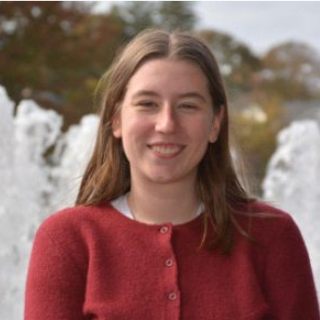
Audrey Fillion
- Bowdoin College 2025
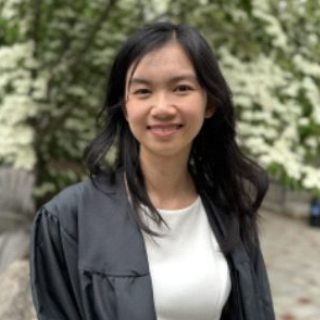
Emily Shi
- Boston College 2025
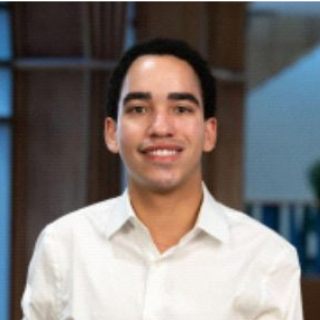
Manuel Perez
- Yale School of Public Health 2025
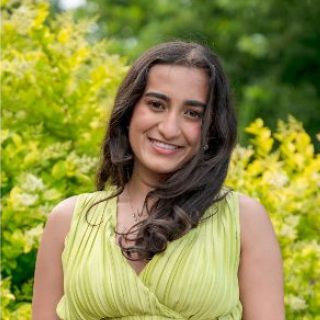
Tanisha Deshmukh
- University of Michigan 2025
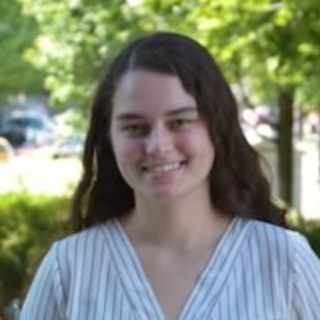
Shantelle Bailey
- Wellesley 2024
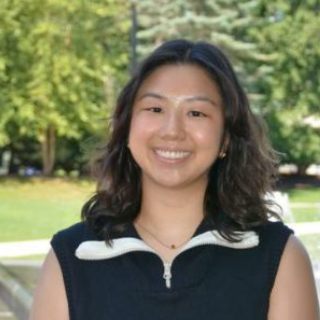
Daniela Kim
- Swarthmore College 2023
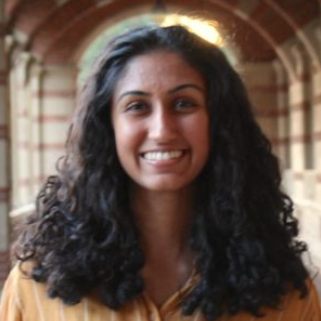
Amrita Bhullar
- UCLA 2023
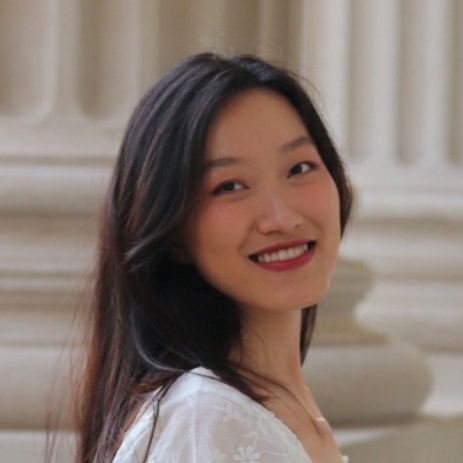
Wei Li
- Weill Cornell Medical College 2028
Wei Li
- Weill Cornell Medical College 2028
- Yale College 2022
It has now been over a year since my time as a fellow. As a first-year medical student immersed in the preclinical curriculum, I am incredibly grateful to have gained experience working as a fellow. Dr. Kuohung is well-loved by her patients, in part because she remembers the details of their lives—a trait I hope to emulate in my own practice. While we learn about the importance of continuity of care in medical school, as fellows, each of us was entrusted to assist Dr. Kuohung with individual patients, ensuring that each patient had a point of contact.
In both simulated exams and real patient encounters during preclerkships, I’ve drawn on my experience as a fellow. While I will continue to refine my patient notes and oral presentations throughout my training, I have established a strong foundation by writing complex dermatology notes and practicing oral case presentations—something Dr. Kuohung actively encouraged, even when it initially felt nerve-wracking. Additionally, working as a Clinical Research Coordinator provided me with insight into the drug development process and helped me feel more comfortable as I began clinical research in medical school, especially in navigating research protocols and Institutional Review Board applications.
Finally, Dr. Kuohung invests in every fellow’s growth and finds opportunities for fellows to shadow across various specialties like cardiology, emergency medicine, ophthalmology, and Mohs surgery. Even after the fellowship ended, she has continued to be an incredible mentor, helping us succeed in our careers.
If you are even remotely considering the fellowship, please do not hesitate to reach out to any of us. As alumni of the program, we are all here to support you!
_______
I joined the Combined Dermatology and Clinical Research Post-Baccalaureate Premedical Fellowship to develop my clinical skills and gain insight into the daily responsibilities of a physician. It was with these goals in mind that Dr. Kuohung entrusts fellows with many aspects of patient care as soon as the fellowship starts, with responsibilities ranging from administrative work to phlebotomy and scribing. With guidance from the senior fellow, I learned to effectively utilize the EMR and understand basic clinic workflow. While I remember feeling overwhelmed and incredibly nervous in my first few months in the clinic as each mistake could affect patient care, I reminded myself that these skills were necessary to become a strong physician. With support from Dr. Kuohung and the team, I learned systems to manage the many details clinicians use to minimize error, including using a checklist and double-checking biopsies, blood samples, and notes daily. Working in the clinic often meant catching up on more work at night and on weekends, but I have grown more confident in my ability to follow clinical reasoning in each patient encounter. I’ve also been able to translate for Mandarin-speaking patients and learn about the complexities of healthcare and insurance.
In addition to working as a medical assistant, each fellow coordinates multiple clinical studies through Beacon Clinical Research. This CRC role helped me build on my previous experiences from college in basic science research by demonstrating firsthand how discoveries can be translated into medicine and tested for safety and efficacy. While there was a lot to learn at first about the regulations in the clinical research field, over time and through many questions asked, I gradually felt comfortable explaining informed consent, processing blood, managing study visits, and communicating with monitors, amongst other important tasks. I also had the opportunity to attend investigator conferences where I met PIs and site personnel from across the nation and learned about the many issues that still exist in clinical research today.
One of the unique aspects that drew me to the premedical fellowship was the opportunity to engage meaningfully with the community around me. Throughout the program, Dr. Kuohung connected our team with leaders, from program directors at Quincy Asian Resources, Inc. to principals at St Paul’s Choir School. As a first-generation college student, I mentored local high school students in applying to college and gave presentations on career discernment to community organizations like EVKids and the YMCA. Additionally, I had the opportunity to travel with Dr. Kuohung to the Dominican Republic on a Waves of Health medical mission trip to support the primary health and dermatological needs of underserved communities in Dajabón
Starting from minimal clinical experience, I’ve learned so much through the fellowship: patient care, clinical research, and community engagement opportunities. I will take the skills with me through medical school and in my career as a physician.
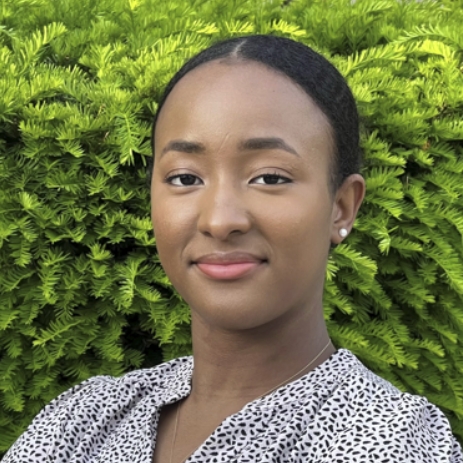
Belunda Moise
- Duke University School of Medicine 2028
Belunda Moise
- Duke University School of Medicine 2028
- Stonehill College 2021
When I came across the Combined Dermatology and Clinical Research Premedical Fellowship listing, I applied without hesitation. It aligned perfectly with my criteria for a program that would challenge me, enhance my clinical skills, and prepare me for the rigorous demands of medical school. After completing the fellowship, I can say that it surpassed my expectations.
The fellowship was rigorous and demanding, particularly during the initial training period. With little familiarity with patient care in a clinical setting and the field of dermatology, the learning curve was steep. After long clinic hours, I spent nights reviewing the day’s progress notes and charts for the following day. Most of my weekends were spent studying dermatological conditions and mastering the EMR software. I received constant, blunt feedback, which, though difficult at times, pushed me to work harder. It was the most challenging endeavor I had encountered, making me question whether I had what it took to pursue a career in medicine.
However, as the days went by, I grew more confident in my capabilities. I developed habits and skills that allowed me to balance a busy clinic schedule, administrative tasks, and clinical research. This experience strengthened my resilience and perseverance and helped me cultivate adaptability. I learned to navigate stressful situations with composure and to remain focused and determined despite setbacks.
The workload, responsibilities, and treatment we received as fellows provide a glimpse into the rigors of clinical training as a medical student. This fellowship has not only enhanced my clinical skills but also fortified my determination to pursue a career in medicine. I believe that the qualities and skills I’ve acquired from the fellowship will help me excel as a medical student.
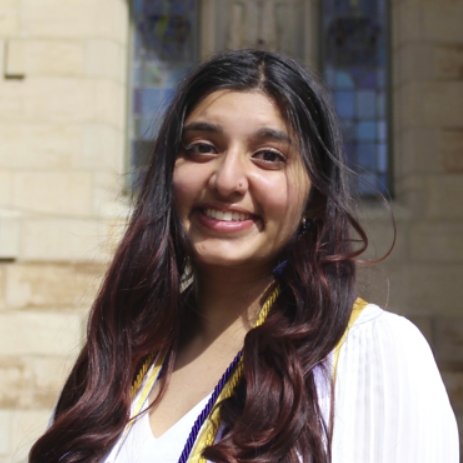
Riyana Patel
- Temple/St. Luke’s School of Medicine 2028
Riyana Patel
- Temple/St. Luke’s School of Medicine 2028
- University of Pittsburgh 2022
As I was finishing my undergraduate years, I was searching for a program that would challenge me. I was hoping to find a position that could test me and prove to me that being a medical doctor was not only achievable but also sustainable amongst the realities of everyday medicine. My two years as a Premedical Fellow for DermCare Experts/ Beacon Clinical Research did just that.
In the beginning, it was much tougher than I had anticipated. Not only was the physical workload overwhelming but the expectations and feedback was dually hard to cope with. Every possible moment of my days including holidays and weekends, was dedicated to figuring out how to do better. I continued to put more hours into understanding the anatomy of a perfect progress note and the steps of clinical research. After accepting the feedback and analyzing the common denominator in my mistakes, gradually I started to improve.
I noted that it wasn’t just my work that improved. Surely, I was now able to take on more clinical trials with the responsibilities of clinical work. However, the most important thing to have appeared for me was my confidence. In college, I never really felt confident that I measured up to the other students intending to go to medical school. I always felt like I was a few steps back. But, as I ascended in the fellowship, that feeling started to fall away.
As new tasks started to emerge I was able to tackle them all. The work ethic that I had created in those first few months, helped me to add on more responsibility as my two years went by at DermCare/Beacon Clinical Research giving a most fulfilling experience. This program taught me more about myself than I had ever expected. I found my confidence as a fellow here, and it is invaluable to start medical school knowing my potential.
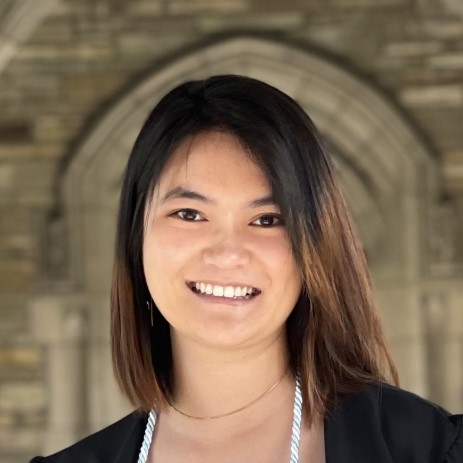
Ada Zhu
- University of Massachusetts Medical School 2027
- University of Massachusetts Medical School 2027
- Cornell University 2021
I came to DermCare Experts from another practice hoping to find more intellectual stimulation and mentorship during my gap years – and I most definitely did. My time in the Combined Dermatology and Clinical Research Post-Baccalaureate Premedical Fellowship has made me more confident, empathetic, diligent and resilient in preparation for the rest of my medical education. Now in my third year of med school, I continue to draw on the skills that I developed at DermCare, which fostered my confidence in patient care and ability to work in an academic team setting on the wards. .
Simultaneously working as a medical assistant and clinical research coordinator, I was compelled to work and think like a medical student or even a resident. Even with previous experience working in dermatology, the learning curve for this job was one of the most difficult that I’ve ever had to overcome. The pace and patient-load at the clinic pushed me to work extremely efficiently and think quickly on my feet to respond to unforeseen circumstances that occurred regularly. After busy days sometimes seeing up to 50 patients a day with just one doctor, I was always very proud of myself and our team for working together and getting through what often seemed like an impossible clinic day. The immense responsibilities that Dr. Kuohung entrusts in the fellows encouraged me to really understand each patient’s case and follow through with their care while building truly intimate rapport with many patients.
Writing progress notes was another key skill I developed during my time at DermCare that helped me distinguish myself as a medical student. Dr. Kuohung is meticulous about progress notes and often very blunt with her feedback. Her teaching pushed me to be scrupulous in everything I do in clinic and to become both resilient and responsive to feedback. Writing summaries after extensive conversations with patients in the exam room taught me to think through cases like a physician. This fostered an ability to understand the clinical decision-making process and accurately document it in clinical notes, creating a strong foundation that allowed me to create strong impressions with attendings even prior to clerkships, transition smoothly into clerkships at a level above my peers, and experience a markedly smoother learning curve.
Finally, Dr. Kuohung is an incredible mentor who truly wants her students to excel. She can be blunt and has very high expectations for her students, but it is this type of mentorship that built my diligence, resilience, and preparedness to enter medicine. The opportunities that Dr. Kuohung has connected me to range from landing incredible volunteer positions like Camp Discovery to shadowing a wide range of specialties including an interventional cardiologist in the OR. She goes above and beyond to network and help her students as much as she can. I’ve seen how her mentorship extends way beyond the fellowship as I watch her guide previous fellows throughout med school and even in residency. I know that she will be there to guide me whether it’s dermatology or whatever specialty I decide to pursue.
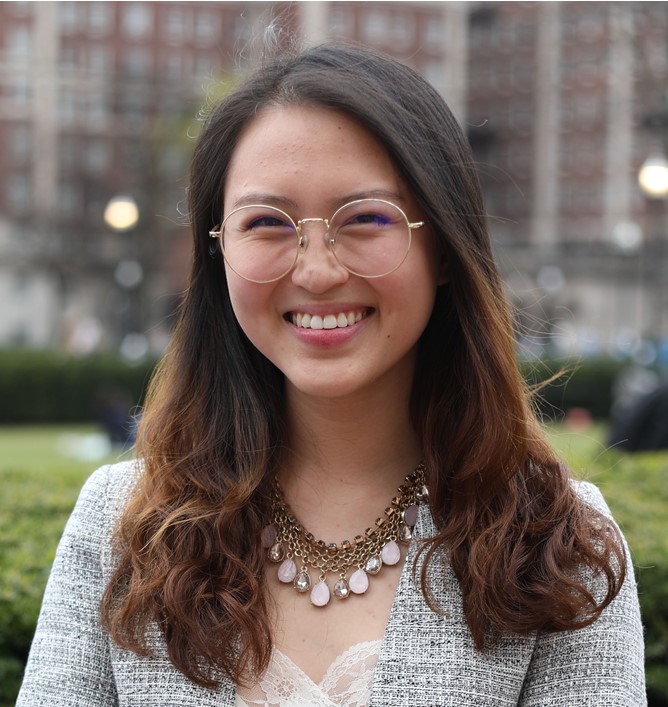
Amelia Tian
- Team lead, Clinical Research IO
Amelia Tian
- Team lead, Clinical Research IO
- Columbia University 2020
This fellowship is jointly hosted by DermCare Experts, a medically-focused dermatology clinic, Beacon Clinical Research, a clinical research organization, and CRIO, a healthtech firm. Under MD supervision, I interviewed and scribed for up to 25 patients daily, reviewed pathology, coordinated care with outside clinicians, completed prior authorizations, fielded patient communications, and assisted in procedures. As a research coordinator, I interfaced with subjects and monitors to manage pharmaceutical trials. I’ve led initiatives such as setting up public skin cancer screens, translating counseling materials to Mandarin, collaborating with outside physicians on case reports, and launching a mentorship program for underserved high school students. Shifting from the mindset of an undergraduate to that of a premed fellow deeply involved in patient care was difficult but formative. During my three training months, the steep learning curve, long hours, and difficulty of juggling three roles (MA, CRC, administrative staff) filled me with self-doubt. By regularly seeking feedback and reflecting on my shortcomings, I was motivated to work harder. With each obstacle I overcame—each blood draw, each insurance approval of a biologic—my confidence grew until I could complete my duties effortlessly. By studying patient cases, I began to understand the scientific and ethical considerations behind clinical decision making. By expanding my interpersonal skills and cultural awareness, I helped my patients feel understood. Finally, in arranging community outreach programs, I’ve been exposed to what it means to be a thoughtful and informed physician who plays an active and impactful role in my community.
It was with Dr. Kuohung’s encouragement that I decided to pursue a separate path and am currently Support Team Lead at CRIO. Although the decision was difficult, I am extremely grateful for Dr. Kuohung’s support throughout the transition. Having studied computer science in undergrad and completed a technical internship during the pandemic, I wanted to further pursue my interest in working at the intersection of technology and pharmaceutical research. I elected to remain as a full time employee at CRIO because of the collaborative and supportive company culture, flexibility of remote work, and myriad opportunities to lead teams and projects. The clinical research experience I gained while at the Fellowship at Beacon Clinical and then at CRIO has been truly invaluable to my current role on the CRIO team. On a personal note, being as deeply immersed in medicine as I was while at DermCare Experts exposed me to certain shortcomings of a career in medicine. I’m grateful to Dr. Kuohung for the lessons learned, and the opportunity she provided in matching me with an appropriate career path at CRIO.
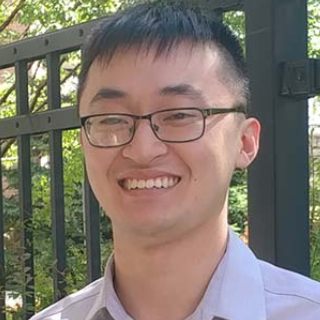
Ryan Chen
- University of Massachusetts Medical School 2025
Ryan Chen
- University of Massachusetts Medical School 2025
- Boston University 2019
The Combined Dermatology and Clinical Research Fellowship was the most difficult job that I held during my premedical career. On my first day, I found myself awkwardly taking a patient’s medical history within ten minutes of showing up on site. Throughout the next few months, I felt a sense of hesitancy and uncertainty as I took on unfamiliar responsibilities in clinic. I found it particularly difficult to transition from a structured educational undergraduate environment to a fast-paced, hands-on clinical environment.
This program is very different from other premedical gap year positions. Unlike a 9:00 to 5:00 scribe position, this program allows its fellows to attain a comprehensive understanding of how our healthcare system works. From day one, I learned about the responsibilities of a physician working in a private practice. I took my patients’ history of present illness and participated in the assessment and plan portion of the visit. I also assisted in relevant medical and cosmetic procedures. Moreover, I was involved with administrative tasks, medical billing, clinic maintenance, and translational clinical research. As I mastered my clinical responsibilities, I started to pursue community service projects, devise systems based improvements, and eventually train the incoming junior class. Naturally, my multitude of responsibilities required a lot of time management and organization, and I often found myself working more than sixty hours a week.
Although challenging, I found my time in this fellowship to be extremely rewarding. Being responsible for over twenty patients a day taught me how to navigate sometimes difficult social situations and improve my interpersonal skills. During my medical school orientation, I volunteered to hold a conversation with a standardized patient, and my peers were impressed at how smooth our conversation went. Additionally, during a training session for intramuscular injections, I confidently injected saline via the Z track method into my partner’s arm given my familiarity with performing subcutaneous and intramuscular injections as a clinical research coordinator. The hands-on learning environment at the fellowship ultimately allowed me to develop a plethora of clinical skills which will help me later in my medical career. As an incoming medical student, I can confidently say that I have a better understanding of basic procedural skills, common medical interventions and their indications, and how the insurance system in the United States works.
I would attribute my success in this program to the mentorship of Dr. Kuohung as well as the support that I received from my seniors and peers. While it is true that I was held to extremely high standards during my time in the fellowship, I understood that everyone genuinely wanted to see me succeed. I will be forever grateful for my experience at this fellowship, and I know for a fact that I would not be where I am today in my medical school career without this program. This premedical fellowship is the perfect opportunity for students to gain the necessary experience to understand the daily responsibilities of a physician and excel in medical school.
Testimonial Update:
As I transitioned into my clinical year at UMass, the skills that I developed during the fellowship became even more invaluable. The ability to efficiently take thorough patient histories, confidently assist in procedures, and anticipate the needs of attendings set me apart from my peers. I recall receiving praise during my surgery clerkship for having gauze at the ready while the rounding team was preparing for a dressing change. Moreover, the heavy patient workload that I became accustomed to at Dermcare allowed me to follow 3+ complex patients during my inpatient services with ease.
Most importantly, my prior exposure to patient care helped me develop a more empathetic approach during patient interactions. Whether dealing with sensitive dermatologic conditions or managing complex inpatient cases, the fellowship instilled in me the importance of clear communication and patient education, which has been crucial to my success in clinical practice. There were many instances where I utilized the interpersonal skills that I had developed to provide comfort to a patient or explain medical jargon in a supportive manner. The experience bridged the gap between premedical education and the practical realities of patient care, making my clinical years not only more manageable but far more enriching.
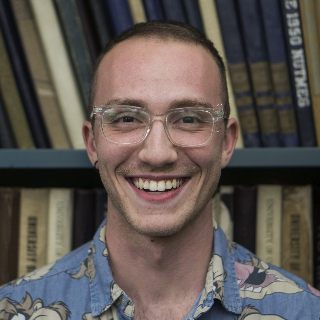
Omar Taweh MD
- Resident, George Washington University Department of Emergency Medicine
Omar Taweh
- Resident, George Washington university Department of Emergency Medicine
- University of Massachusetts Medical School 2024
- University of Connecticut 2019
A member of the DermCare Experts team for a summer internship before medical school, I can confidently say that Dr. Kuohung is the most dynamic, energetic, and amazing mentor I’ve had in any clinical setting, insofar. A well-rounded student, I wasn’t expecting a challenge like the one I encountered joining the summer clinical internship: one set in an intense work environment and that began with a steep learning curve.
A physician trained in both law and in medicine, Dr. Kuohung helps activate her interns critical thinking skills from the medical, legal, and social justice perspectives. Having been granted a gradually increasing level of autonomy over the course of my time at the clinic, I was not only exposed to the thought processes used in medicine but was also granted the opportunity to engage in them myself. Under the guidance of Dr. Kuohung, I learned how to do things I had not imagined I would have done until the end of my medical school career, if not until residency.
All compliments aside however, this program pushed me far more than any other job, class, or internship had previously. I was held to high expectations with Dr Kuohung, and as a result, have stood out among others during medical school and now, residency. In my time at DermCare, I learned what true “tough love” from a mentor and boss looked like – one that held your hand at times, and at other times let you figure out how to swim on your own. I can confidently say that it is NOT for simply any pre-med; to thrive and succeed, one must be motivated, dedicated, and extremely open to rebuilding their understanding of what a clinical internship would look like. All in all, this program will help set you on a trajectory to become the best physician you can be.
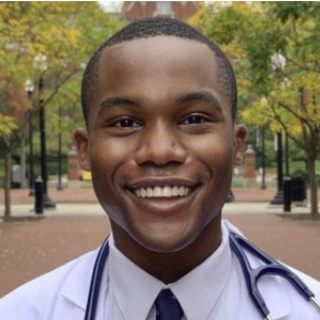
Kalvin Nash MD
- Resident, University of Maryland Department of Family and Community Medicine
Kalvin Nash
- Resident, University of Maryland Family Medicine
- Johns Hopkins University School of Medicine 2024
- Hamilton College 2018
The Combined Dermatology and Clinical Research Fellowship afforded me many opportunities for personal and professional development that have subsequently formed me into a more thoughtful, competitive, and efficient medical professional. I have been, and still am, surprised by how much I learned under Dr. Kuohung’s tutelage. As a junior fellow, I recall how timidly I approached venipuncture or new administrative tasks. Now as a medical student at Johns Hopkins University School of Medicine, I confidently complete all my clinical responsibilities. My early journey through medicine did not come, however, without sacrifice or hardship.
My transition, from the mentality of an undergraduate to that of a medical student was arduous and miserable. My commitment to the clinic and its patients took a heavy toll. Every day for my first four months as a premedical fellow, I considered quitting. The overwhelming torrent of knowledge paired with demanding clinic hours led me to reevaluate my professional aspirations and trajectory. Indeed, I arrived at the clinic each morning at 7:45 AM and did not leave until we documented and advised our last patient on their disease. Somedays, the clinic closed at 5:00 PM. Other days, the clinic did not end until well past 7:00 PM. And even after having left the clinic, my mind lingered there within. “Did I complete all my progress notes accurately?” “Did I move the TB blood to the Quest drop-box?” My second guessing was crippling at times, worsened still by my failure despite my enthusiastic endeavors. This transition, as difficult as it was, was important and formative. My acknowledgement of my inadequacies and failures is what I needed to inspire me to work harder. If it were not for this difficult transitional phase, I would not have had the humility and motivation to persist through the program, nor would I have been poised to begin medical school in the summer of 2020
Now, as a current M2 preparing to transition to the wards, I am grateful to have been a premedical fellow. In retrospect I realize that it was thanks to Dr. Kuohung that I learned how to take a patient history, a skill at the core of any diagnosis and essential to the practice of medicine. In the clinic, I remember using my developing medical reasoning skills to ask pertinent questions during the patient interview. For instance, I recall the algorithm I developed for interviewing patients who present with a scaly hypopigmented rash localized to their torso and upper extremity. I learned to ask such patients about their fitness habits since tinea versicolor, a differential diagnosis, is associated with athletes. A positive patient history that interrogated exercise habits could clinch this diagnosis (in addition to a positive KOH). A good history can therefore make or break a diagnosis which is why I am so lucky to have developed this skill early.
The core history taking and clinical reasoning skills I developed at the fellowship make me an effective and efficient thinker in the exam room. Recently, I used these very skills to help diagnose a case of lymphangitis, an infectious dermato-vascular process. An 84 Y/O woman presents to the clinic with 2-day history of acute pain, limited range of motion, and erythema affecting the left wrist, palm, and ventral forearm. She reports that symptoms began at the time of waking and denies overuse of the arm and hand. She does not recall sustaining any injury prior to the day of symptom onset. Initial pain was followed by swelling and erythema of the affected area 1 day after symptom onset. The erythema expanded in a linear fashion along the ventral aspect of her forearm. Her pain is 8/10. Her symptoms worsened progressively and include pain, swelling, and reduced range of motion. The pain as sharp and radiating. She treated her symptoms with an OTC topical cream for arthritis but did not note improvement.
Based on visual examination of the lesion alone, the differential is quite extensive. It could be a stress fracture, lymphangitis, tenosynovitis, gout, or even rheumatoid arthritis. Details I collected in her history, however, make the likelihood for some conditions on the differential less likely. For example, the warm, linear, red, progressive streak up the ventral aspect of the forearm might favor an infectious process like lymphangitis. No history of wrist overuse or strain might make tenosynovitis less favorable. The unilateral distribution of disease might make rheumatoid arthritis less likely. Thus, the patient’s history helps to parameterize their condition and can therefore dramatically affect our medical evaluation and pretest-probabilities. While history taking is taught in medical school, learning when, how, or why some questions are to be asked takes advanced knowledge and plenty of experience which is why an early immersive premedical experience is invaluable. Dr. Kuohung prepared me to grapple with such cases by challenging me to enter the mindset of a physician whilst in the exam room during my tenure in the fellowship. It was early experiences through her program that trained me to be an insightful addition to the medical team as a second-year medical student and stand apart from my peers.
Through performing countless patient interviews, engaging with up to 26 progress notes daily, liaising with laboratories, pharmacies, clinics, insurance providers, IRBs, CROs, reviewing benign pathology with patients under MD supervision, and assisting during surgical procedures, I acquired the necessary experience to think critically about what it means to be a physician in the community. As a mentor, Dr. Kuohung has created several occasions for me to shadow, speak with, and learn from several physicians across myriad specialties. She is committed to seeing all her fellows achieve their dreams which is what sets her apart from other physicians having similar programs. Even for me as a graduate of the program, she continues to demonstrate her allyship by offering to connect me to her colleagues, key opinion leaders in their respective disciplines. Dr. Kuohung’s commitment to her fellows, both direct and indirect by way of this program, prepared me to be a competitive and informed medical school applicant, and an equipped medical student. The premedical fellowship offers the unique opportunity for the professional development of aspiring physicians through a condensed, thorough, fast-paced, and intensive curriculum. From venipuncture to collecting a patient’s history, there are several occasions for one-on-one patient interaction. Dissimilar to many pre-medical gap year programs, this fellowship focuses on developing the skills of its fellows for the cultivation of thoughtful and informed future physicians. Dr. Kuohung accomplishes this by encouraging her fellows to take on new and sometimes challenging tasks under her supervision. Fellows, as a result, quickly begin to comprehend then engage with the scientific, medical, and ethical facets of clinical encounters and decision making.
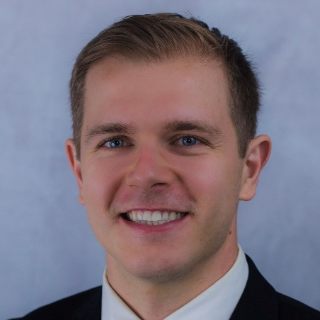
Brian D’Amore MD
- Resident, Massachusetts General Hospital Interventional Radiology Integrated Residency
Brian D’Amore
- Resident, Massachusetts General Hospital Interventional Radiology Integrated Residency
- Drexel University College of Medicine 2021
- Worcester Polytechnic Institute 2016
I trained under Dr. Kuohung in her premedical fellowship and am now a resident at Massachusetts General Hospital in the integrated diagnostic/interventional radiology program. I would not have made it this far without Dr. Kuohung. She took me under her wing and well-prepared me for medical school and a career in medicine. Her training became undoubtedly evident when I was on my clinical rotations as a medical student. Dr. Kuohung taught me to engage with patients, gather a detailed history and physical, present cases to attendings, write comprehensive notes and more. She made sure I was always prepared when seeing patients by knowing their entire clinical histories and treatment plans. She even taught me to draw blood, throw sutures, and first assist her in skin cancer surgeries, all of which laid the foundation for future years of training in interventional radiology. I excelled as a medical student on my clinical rotations and received honors for nearly all grades because of her training. On one of my evaluations, my attendings commented: “Exceptionally well prepared with pre-reading and knowledge of his patients. Impressed several of us with his procedural skills. Above and beyond peers for his level of training.”
Not only was this experience valuable working with patients, but it also taught me about clinical research and clinical trials through Clinical Research IO (CRIO). CRIO is a tablet application that captures clinical trial data during patient visits, which is referred to as eSource. I worked with CRIO as one of her fellows and then remotely for all four years of medical school, first as a study designer and then was promoted to quality control. I’ve worked with over 50 study protocols all for different drugs and indications. This was a fantastic opportunity to learn the ins and outs of clinical research trials, including a detailed analysis of the protocols, study visits and patient safety. I hope to work with clinical trials in the future and will rely on all my experiences and knowledge gained from Dr. Kuohung and CRIO.
To this day, Dr. Kuohung is the best mentor I’ve had in my career. Even though I graduated from her program, she still takes a genuine interest in my life. Knowing how busy she is between her clinical work and four children, it says a lot about her character that she stays in close contact with all her past fellows and tries to help in any way she can. For example, she connected me with attendings at Mass General where I worked on several projects that were accepted as abstracts to major international meetings.
While I can promise that her trainees will be excellent future medical students, going through her program is challenging work. She treated us as she would rotating medical students. We were expected to stay until the last patient was seen and all notes and tasks were completed for that day to ensure all patient related matters were appropriately addressed. On top of this, we were expected to dedicate time after hours to study diseases, medications and treatments that were encountered in the clinic. Despite the tough work and steep learning curve, it was the most valuable experience I could have undergone. I could not have made it this far without Dr. Kuohung.
I would like to leave my contact information for prospective trainees to reach out if they would like to know more about the fellowship and how it will prepare them for medical school and a career in medicine. Please do not hesitate to contact me at brd58@drexel.edu
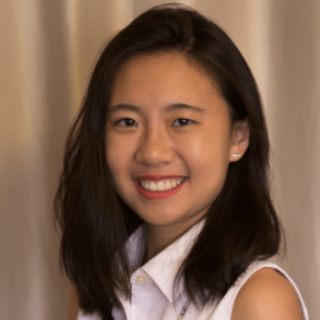
Maxine Lai
- Manager, Clinical Research IO
Maxine Lai
- Manager, Clinical Research IO
- Wesleyan University 2017
The Combined Dermatology and Clinical Research Fellowship offers students a unique opportunity to fully immerse themselves in the multifaceted and complex world of medicine. While this program is challenging, I promise that it is also extremely rewarding.
In hindsight, the first four months of the fellowship are the toughest. In this short time, you are expected to master the fundamental skills and workflows that will allow you to succeed as both a medical assistant and a clinical research coordinator. Between meeting 20-25 patients a day in clinic, quarterbacking patient follow-up, reading up on new conditions or medications that I encountered, mastering study protocols, and completing study visits, it was easy to become overwhelmed by the sheer number of responsibilities and the level of autonomy given to me. It was only after 6 months that I started to feel comfortable balancing all my duties and even then, this position remained challenging. As I progressed through the fellowship, Dr. Kuohung pushed me to take on new tasks, dive deeper into medical literature and think about the business, legal and scientific aspects of practicing medicine.
To speak more about the clinical research component of this program, fellows are engaged in all parts of study initiation and maintenance. I learned how to interpret complex study protocols, build source documents, carry out study visits, juggle the many demands of sponsors and CROs, and build rapport with trial patients. Managing clinical trials across a wide range of indications completely transformed my basic understanding of drug development. I also saw firsthand how clinical research plays a role in furthering medicine and how that can trickle down into everyday patient management.
As a mentor, Dr. Kuohung is an enthusiastic, passionate, and knowledgeable teacher. She works closely with each of her fellows, offering frequent and direct feedback. Although she can sometimes be tough, it is because she cares deeply about her fellows and is invested in their success. You can always count on Dr. Kuohung to advocate for her students when it comes to learning opportunities inside and outside of the program.
While I ultimately decided to pursue a different career path, I know that I wouldn’t be where I am now without this program and Dr. Kuohung’s continued support. In fact, it is because of my work as a fellow that I was able to reach my current position as Implementation Manager – Team Lead for CRIO. CRIO is the leading eSource and clinical trial management solution within the clinical research industry. When I first joined the team, I provided support to different departments including customer success, quality assurance and marketing as an associate. With my research experience and early exposure to the industry as a coordinator, I was able to transition to a client facing role and quickly grow upwards within the company. Now I help research sites adopt CRIO into their daily operations. Everything that I learned in the fellowship can be translated into my current work which is all about developing connections and helping research sites successfully utilize different parts of our platform.
I am grateful to Dr. Kuohung and the fellowship for all the lessons learned and the relationships gained. If you would like to learn more about the clinical research or CRIO components of the program, please feel free to reach out at maxine@clinicalresearch.io!
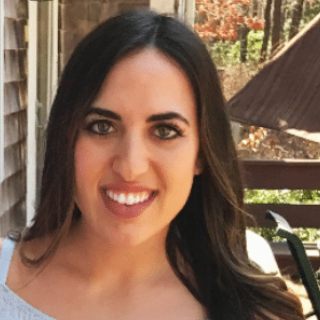
Sabrina Jamiel PA-C
- Center for Dermatology and Plastic Surgery, Arizona
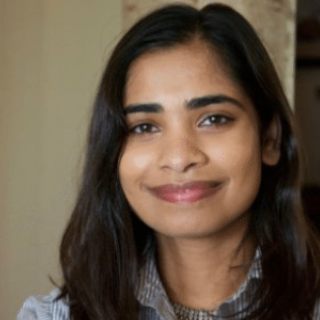
Natasha Khona DO
- Resident, University of Arizona Department of Pathology
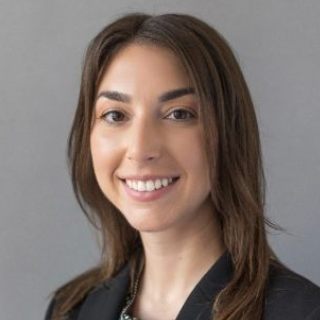
Nicole Mastacouris MD
- Resident, Northwell Health Department of Dermatology
Nicole Mastacouris
- Resident, Northwell Health Department of Dermatology
- Loyola University Stritch School of Medicine 2023
- University of New Hampshire 2014
The premedical clinical training fellowship is an immersive and comprehensive experience that provides extensive exposure to dermatology and pharmaceutical clinical trials for pre-medical students. Under the guidance of Dr. Kuohung, I learned fundamental clinical skills that proved to be tremendously valuable throughout medical school, including taking a detailed medical history, delivering a concise presentation, writing a visit note, and assisting in surgical procedures.
The program also provides exposure to the administrative side of medicine, which involves scheduling patients, reviewing biopsy results and completing prior authorizations. As a recent medical school graduate, I can confidently say that Dr. Kuohung’s program has been essential to my success thus far. Having a solid grasp of fundamental clinical skills as a pre-medical student allowed me to hit the ground running in my many of my clerkship experiences. The clinical research component of the program is also highly beneficial because fellows gain an understanding of informed consent, study protocols, data entry, and clinical trial monitoring processes. In this setting, I also learned how to navigate challenging clinical scenarios such as communicating with patients who experienced adverse reactions to study therapies.
Overall, these experiences helped me effectively navigate patient encounters and excel in standardized patient exercises throughout medical school. In addition, Dr. Kuohung’s program provides the opportunity to gain experience in the healthcare technology sector as an electronic data source study designer at Clinical Research IO (CRIO). This role allowed me to expand my clinical knowledge and understanding of protocol design to effectively create electronic source workflows. Because of my interest in healthcare technology and innovation, I was offered additional responsibility and even had the opportunity to represent CRIO at an international research summit.
Through my connection with Dr. Kuohung, I was able to continue working with CRIO during medical school and assisted in company sponsored research studies. In summary, Dr. Kuohung’s premedical fellowship has been invaluable to my success in medical school. I would highly recommend this program to any pre-medical student who is passionate, eager to learn, and work hard. Although the journey to medical school can be challenging, Dr. Kuohung and her team are incredibly resourceful and will prepare you for success in your future medical training. Despite completing the program in 2017, I would still consider Dr. Kuohung to be one of my biggest supporters. She has always offered excellent advice and genuinely cares about my career trajectory.
If you have any questions or would like to learn more about the fellowship, please don’t hesitate to contact me: nmastacouris@luc.edu.
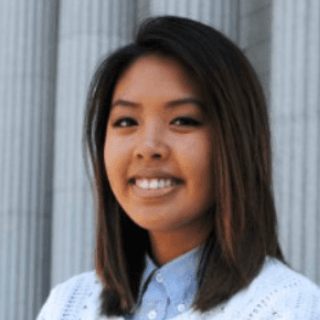
Michelle Nguyen MD
- Resident, Kaiser Permanente Los Angeles Medical Center Obstetrics and Gynecology Residency
Michelle Nguyen
- Resident, Kaiser Permanente Los Angeles Medical Center Obstetrics and Gynecology Residency
- Tufts University School of Medicine 2023
- Boston University 2020
I gained insight and expertise into the necessary intricacies of clinical pharmaceutical trials, allowing myself to understand the importance of research in furthering the medical field. Along with these specific skills, I also gained an underlying yet imperative set of skills in clinical interaction and face-to-face time with patients. By being able to not only work with patients for prolonged visits, of up to 3 hours at a time, but also follow them throughout the course of the trials, I practiced developing and building patient rapport, a vital skill necessary within clinical interactions.
The program allowed me the freedom to have more responsibilities than most other roles all while providing the necessary guidance when encountering different types of situations. By interacting with a diverse patient population, I was able to hone in on not only clinical procedural skills, but also learned how to navigate sometimes awkward situations, a necessary attribute I will need in the future working in the medical field.
I enjoyed working with Dr. Kuohung and the staff because of how supportive they were and how much teamwork was emphasized. I will carry these vital skills with me forward in the medical field as a future clinician.
As I near the end of medical school, I reflect on my journey that has been both rewarding and challenging in preparing me for the next stage of training: residency. One aspect I am thankful for is my time at Beacon Clinical Research and DermCare Experts, where I developed the confidence to become a well-rounded provider that can communicate effectively with patients, understand their concerns, and provide compassionate care. Prior to beginning medical school, I attained these skills as a CRC at Beacon Clinical Research, where I developed longitudinal relationships with research subjects and thus was able to excel in my clerkship years. Good communication skills are vital for building trust and rapport with patients and I am grateful for DermCare Experts in allowing me to grow both personally and professionally!
Dermatology Premedical Practicum
An abbreviated clinical experience.
Currently closed to new applicants.
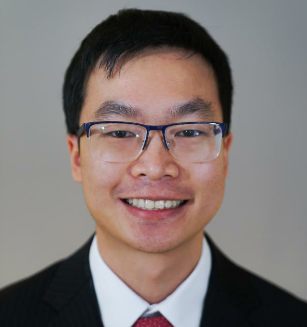
Hongyi (Haniu) Ren
- Resident, University of Texas Health Science Center at Houston Ruiz Department of Ophthalmology and Visual Science
Hongyi (Haniu) Ren
- Resident, University of Texas Health Science Center at Houston Ruiz Department of Ophthalmology and Visual Science
- Virginia Commonwealth University School of Medicine 2025
- Harvard College 2019
I worked with Dr. Kuohung for one year as part of an abbreviated premedical fellowship experience and at the time of writing this I am finishing up medical school having matched into ophthalmology. Reflecting on my time at DermCare, now with the perspective of 4 years of medical school, I can confidently say that the skills I gained from the program and mentorship I received from Dr. Kuohung have been instrumental in my medical school success and ability to match into a competitive specialty. With that said, this was also by far the most challenging experience in my career so far and will likely not be for everyone.
The program allowed me the freedom to have more responsibilities than most other roles all while providing the necessary guidance when encountering different types of situations. By interacting with a diverse patient population, I was able to hone in on not only clinical procedural skills, but also learned how to navigate sometimes awkward situations, a necessary attribute I will need in the future working in the medical field.
This is not a typical gap year scribing job and in fairness it does not pretend to be. Dr. Kuohung basically holds her fellows to the level of a 4th year med school acting intern in that they truly take ownership of their patients, from taking histories, to performing physical exams, to presenting and developing management plans, all on top of the administrative and clinical research responsibilities. This is a philosophy I very much admire from Dr. Kuohung – in an incredibly hierarchical field, she tries to see all her fellows as equals. If you can make it through this, you will undoubtedly thrive in a future medical career. However, this level of responsibility can be hard even for 3rd/4th year medical students, let alone premedical fellows, and there were those who were ultimately overwhelmed, myself included. Between the long days, juggling ~20 patients/day while balancing clinical studies, constant anxiety over writing perfect notes, and frequent – genuine, but also bitingly honest – feedback, I wondered everyday if this was really worth it. Frankly, my surgery and audition rotations were less stressful than this. I almost quit like five different times. And ultimately after a year I decided that the stress was too much to handle and chose to pursue a different route.
That could have been the end right there. But whereas many would have taken it personally, Dr. Kuohung remained just as invested in my success as before. One of the many benefits of the fellowship is the connections you make during your time there, particularly through shadowing, and it was through this that I was first introduced to ophthalmology. Immediately after ending my time, she worked to set me up with the same ophthalmologist I shadowed previously and I ended up transitioning smoothly into an ophthalmic scribe/technician role for a year before starting medical school. For a small competitive field like ophthalmology, early exposure and connections are critical, and I had a significant leg up when starting med school as I was able to get a head start on research opportunities and leadership roles.
Throughout medical school, I remained in touch with Dr. Kuohung and would often reach out for advice. On numerous occasions she has offered to connect me with her colleagues when I was still exploring various specialties. With her help, I also published a dermatology case series as first author; that overall experience in writing and submitting manuscripts would prove useful in my later research in ophthalmology. When 4th year came around and I began to work on my residency applications, she was the first one I reached out to for help on my personal statement. I think it says a lot that even five years later, and with four years of medical school under my belt, I would still say she has been my most involved mentor. Indeed, one of her visions for the fellowship is to create a professional network that will support future graduates and I think that is the greatest strength of the program.
Dr. Kuohung and her fellowship are tough. I can’t say I look back on my time fondly, but with the benefit of experience I am glad I did it. I jokingly like to think of her sometimes as the tiger parent of bosses. As a fellow, that style didn’t work for me, but there should also be no question that she genuinely cares about every one of her fellows and will go above and beyond to ensure they succeed. She is an incredible resource and unparalleled mentor and I owe much of my success to her.
Advisors
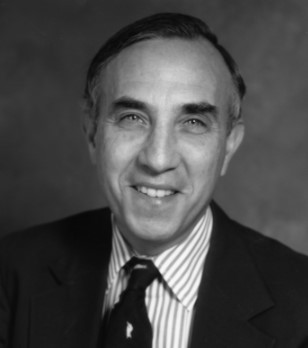
Richard Gusberg MD
Premedical Fellowship Admissions Consultant
Richard Gusberg MD is an Emeritus Professor of Surgery at the Yale School of Medicine and Executive Director of Mentor X, a consulting business that provides career counseling and longitudinal mentoring for high school and college students interested in applying to medical school. While on the faculty at the Yale School of Medicine, he was on the medical school Admissions Committee and led both teaching and mentoring programs for the Department of Surgery. Dr. Gusberg is a resource for the premedical fellowship, providing an insider’s look into the medical school admissions process.
Dr. Gusberg and his wife, an Associate Professor of Emergency Medicine at Yale, live on a farm in Connecticut with two dogs, two donkeys, three goats, and six chickens. They have five children and three grandchildren. When not doing farm work, keeping track of the comings and goings of his kids and grandkids, or working with MentorX clients and the students in the Yale Simulation Academy, Dr. Gusberg enjoys painting watercolors, biking, fishing, kayaking, and trying (with mixed results) to teach himself blues piano.
Dr. Gusberg also welcomes inquiries from other pre-medical students who seek assistance with their applications in this incredibly competitive environment.
Contact: richard.gusberg@gmail.com
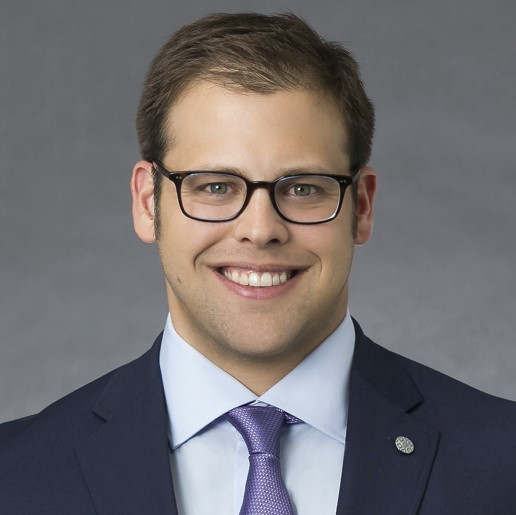
Zachary Gross MD
Premedical Fellowship Counselor
Dr. Gross is a former Junior A hockey player whose original career aim was to play professionally. An injury ended his hockey dreams and he realized then he wanted to go to medical school. With previously poor grades, however, he decided he would work as hard as he possibly could to become a physician. He subsequently graduated magna cum laude from Curry College.
After graduating, he scored poorly on his first MCAT and then spent six months in clinical research on thyroid cancer while deciding what his next steps would be. He interviewed at Ross University School of Medicine but then heard nothing for months. He was finally admitted after calling weekly to get updates, telling them that they would not regret accepting him. After graduating, he spent a year to do research in multiple myeloma, resulting in first authorship on a paper in a major hematology/oncology journal.
Dr. Gross matched into an internal medicine residency at Florida State University College of Medicine where he received the 2019 primary care award. He is now a board-certified internist with the Harvard Medical Faculty Physicians at Beth Israel Deaconess Medical Center.
Through his experience overcoming tremendous odds to becoming a physician, Dr. Gross is intimately aware of the challenges nontraditional students face in medicine. He himself had to overcome the hurdle of low grades and poor test scores to even first get accepted to college. Because of his background, Dr. Gross personally knows the importance of sheer determination throughout the medical school process. He thus assists the premedical fellows as a counselor on how to manage a stressful clinic. Dr Gross serves as a sounding board to help them develop the grit needed to succeed in their medical school applications, and provides feedback on how to be efficient in clinic, skills that help people gain an advantage in medical school.
